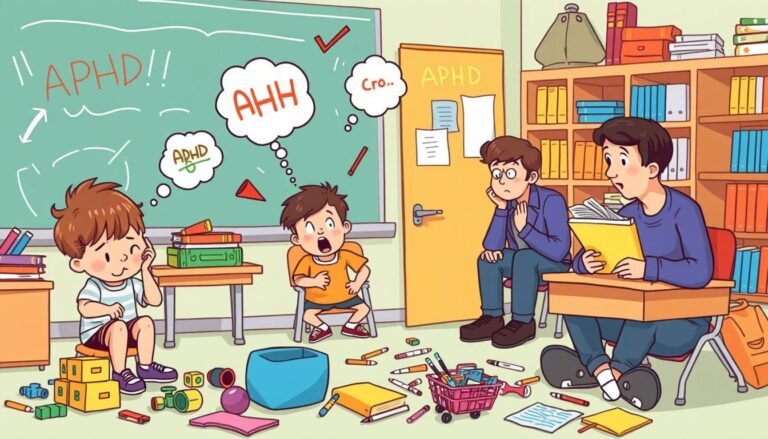Exploring Feminist Therapy Theory: A Modern Approach
Can therapy really help people challenge society and find themselves? Feminist Therapy Theory says yes, offering a fresh view on mental health and growth.
Feminist Therapy Theory started in the 1960s women’s liberation movement. It was a response to psychology’s male dominance. It sees how gender roles and social justice affect our minds, aiming for equality in therapy.
This therapy doesn’t stick to one way of working. It changes based on what each person needs. It uses tools like reading therapy, learning to be assertive, and analyzing power to tackle issues like trauma and poverty.
It’s about empowering and enlightening people of all genders. It’s not just fixing problems; it’s about gaining freedom and pushing for change. A world where everyone is equal is better for everyone’s mental health.
Understanding the Foundations of Feminist Therapy Theory
Feminist therapy theory started in the late 1960s, during the second wave of feminism in the United States. It was a new way to help people deal with the challenges women face in a society ruled by men.
Origins and Development
The idea of feminist therapy came from seeing how old-school psychology ignored the big role society plays in our mental health. As feminism grew, therapists started to see how gender roles and upbringing affect people’s happiness.
Core Principles and Values
Feminist therapy is based on a few main ideas:
- Looking at personal and political situations
- Working towards social change
- Valuing different viewpoints
- Creating equal relationships in therapy
- Emphasizing strengths
- Seeing all kinds of oppression
These ideas help therapists tackle the mental problems caused by society and its unfair systems.
Influence of Feminist Movement on Psychology
The feminist movement changed psychology by making it clear that gender matters in mental health care. It brought in ideas like informed consent and looking at power in therapy. Now, feminist therapy helps everyone, not just women, by fighting against unfair norms and helping people find their power.
“Feminist therapy remains focused on analyzing power dynamics both within and outside the therapy office, emphasizing the broader social and political contexts influencing gender constructions.”
Key Concepts in Feminist Therapy Theory
Feminist therapy focuses on helping women and marginalized groups. It aims to empower, increase self-awareness, and fight for social justice. Let’s dive into the main ideas that make up this therapy model.
Gender Roles and Socialization
Feminist therapy looks at how gender roles affect mental health. It fights against stereotypes and biases that hold people back. The goal is to help clients see how society’s expectations shape their self-image and identity.
Power Dynamics and Oppression
This therapy sees how systemic discrimination harms mental health. It tackles issues like unfair workplaces, violence, and lack of resources. By understanding power structures, feminist therapy helps clients regain their power and become more assertive.
Intersectionality and Diverse Perspectives
Intersectionality is key in feminist therapy. It recognizes that people face unique challenges based on their identities. This includes race, class, sexuality, and ability, in addition to gender. By valuing diverse views, feminist therapy offers more inclusive and effective support.
Feminist therapy helps those who’ve faced many kinds of oppression. It’s good for treating depression, anxiety, and trauma. It also supports those figuring out their identity and dealing with relationship issues. By focusing on social justice, it teaches clients to fight for equality and human rights.
“The voices of marginalized individuals are a profound source of wisdom in feminist therapy, challenging traditional expert-centered approaches.”
Feminist Therapy Theory in Practice
Feminist therapy puts empowerment at the center of mental health care. It deals with big issues like trauma and economic struggles. People of all genders can find help through its unique view.
In feminist family therapy, therapists use special methods. They analyze gender roles and power dynamics. Clients also read feminist books to learn more.
The relationship between the therapist and client is key in feminist therapy. Clients are seen as the experts in their lives. This helps them become more independent and assertive.
“Feminist therapy empowers individuals to challenge social inequalities and work towards personal and collective change.”
Feminist therapy doesn’t follow a strict plan, but its benefits are clear. Clients often feel more empowered and confident. They learn to face life’s challenges with newfound strength.
| Feminist Therapy Technique | Purpose |
|---|---|
| Self-disclosure | Build trust and rapport |
| Gender-role analysis | Examine societal expectations |
| Power analysis | Identify sources of oppression |
| Reframing | Change perspective on issues |
| Social action | Encourage community involvement |
Challenges and Critiques of Feminist Therapy Theory
Feminist therapy theory has made big strides but still faces hurdles today. It started in the 1970s, focusing on gender roles in a society dominated by men. Over 50 years, it has grown to tackle more issues.
Limitations in Research and Evidence Base
One big issue is the lack of solid research proving its success. Unlike other therapies, feminist therapy doesn’t have a set plan. This makes it hard to measure how well it works. Some doubt its effectiveness because of this lack of evidence.
Potential Biases and Overemphasis on Social Factors
Some say feminist therapy might push the therapist’s views too much. Rohrbaugh (1980) noted that the approach might hide real power issues. Focusing too much on society might also take away from personal growth.
Evolving to Address Diverse Populations
Feminist therapy has been seen as not considering all aspects of identity. But, it’s changing to be more inclusive. Today, therapists aim to understand clients’ unique experiences, including race, sexual orientation, and disability. This shift aims to help a wider range of people, recognizing the complex nature of identity.
Source Links
- What Is Feminist Therapy?
- What Is the Goal of Feminist Therapy?
- Feminist Theory – Theoretical Models for Teaching and Research
- Feminist Therapy
- Online Counselling | Online Therapy| Marriage Counsellors | TalktoAngel
- Feminist Therapy and Techniques
- Feminist Approaches in Counselling Psychology: Empowering Women’s Mental Health | Auctores
- Feminist Therapy – A Contradiction in Terms?
- What Feminist Therapy Is Not








